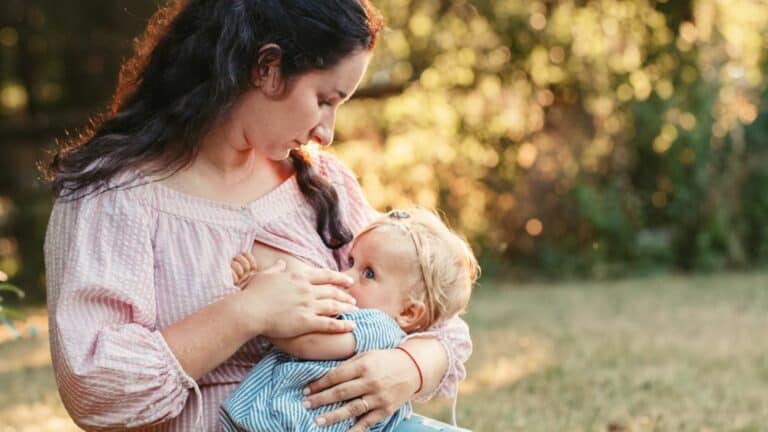It’s International Yoga Day: 15 Amazing Reasons to Get Your Kids into Yoga

Yoga is a holistic practice that integrates the mind, body, and spirit. For young children, yoga offers a myriad of benefits that extend far beyond the mat. It can provide kids with physical exercise and help support emotional and mental well-being. Here are 15 compelling benefits of introducing yoga to young kids.
Improves Flexibility
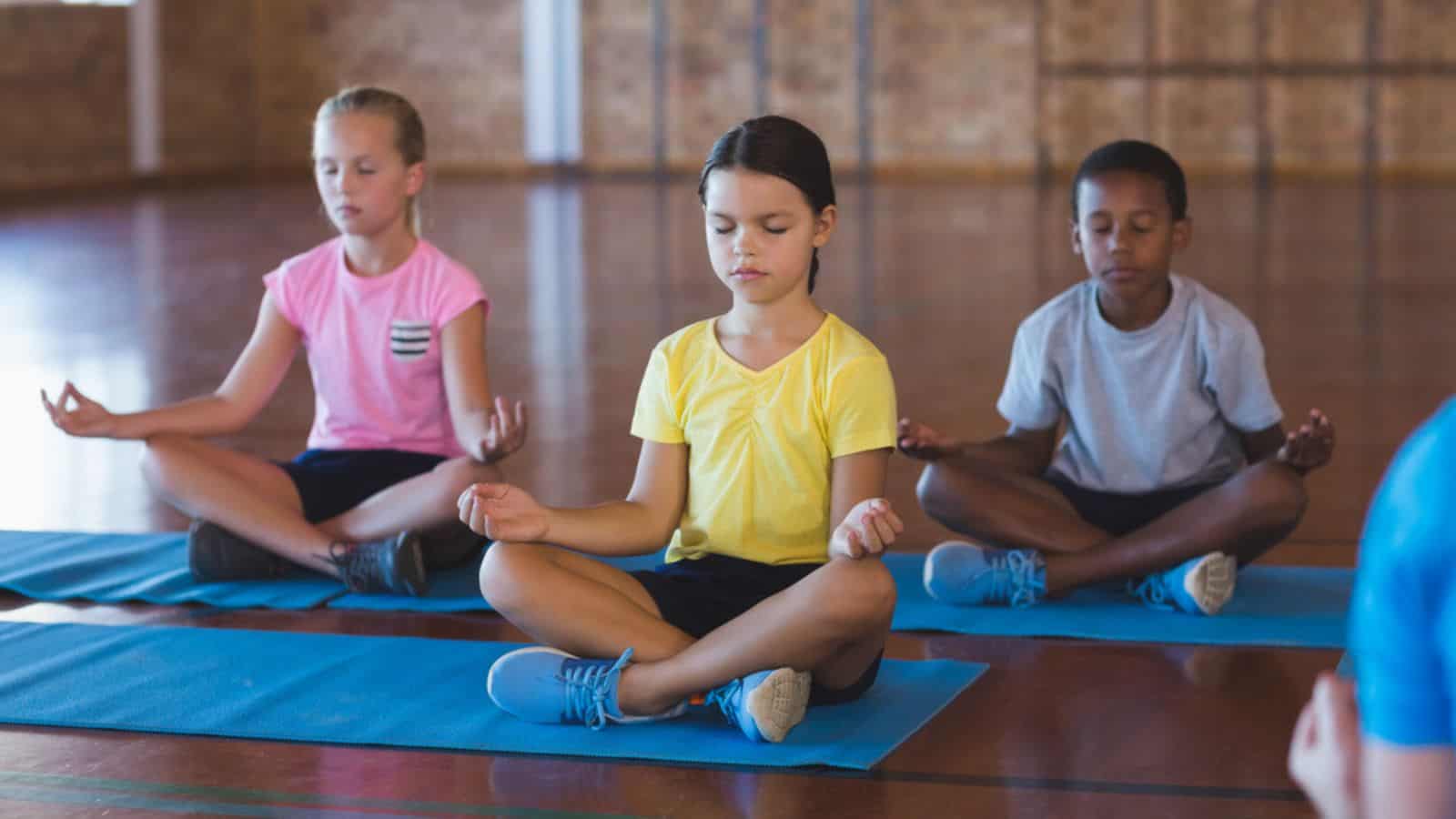
Introducing yoga to young kids can significantly improve their flexibility. Flexibility is crucial for children as their bodies are still developing, and yoga poses, such as the downward dog or the cobra pose, gently stretch various muscle groups. This stretching helps to lengthen muscles and increase the range of motion in joints, which can prevent injuries and improve overall physical performance. Enhanced flexibility also aids in the development of better posture and coordination.
Builds Strength
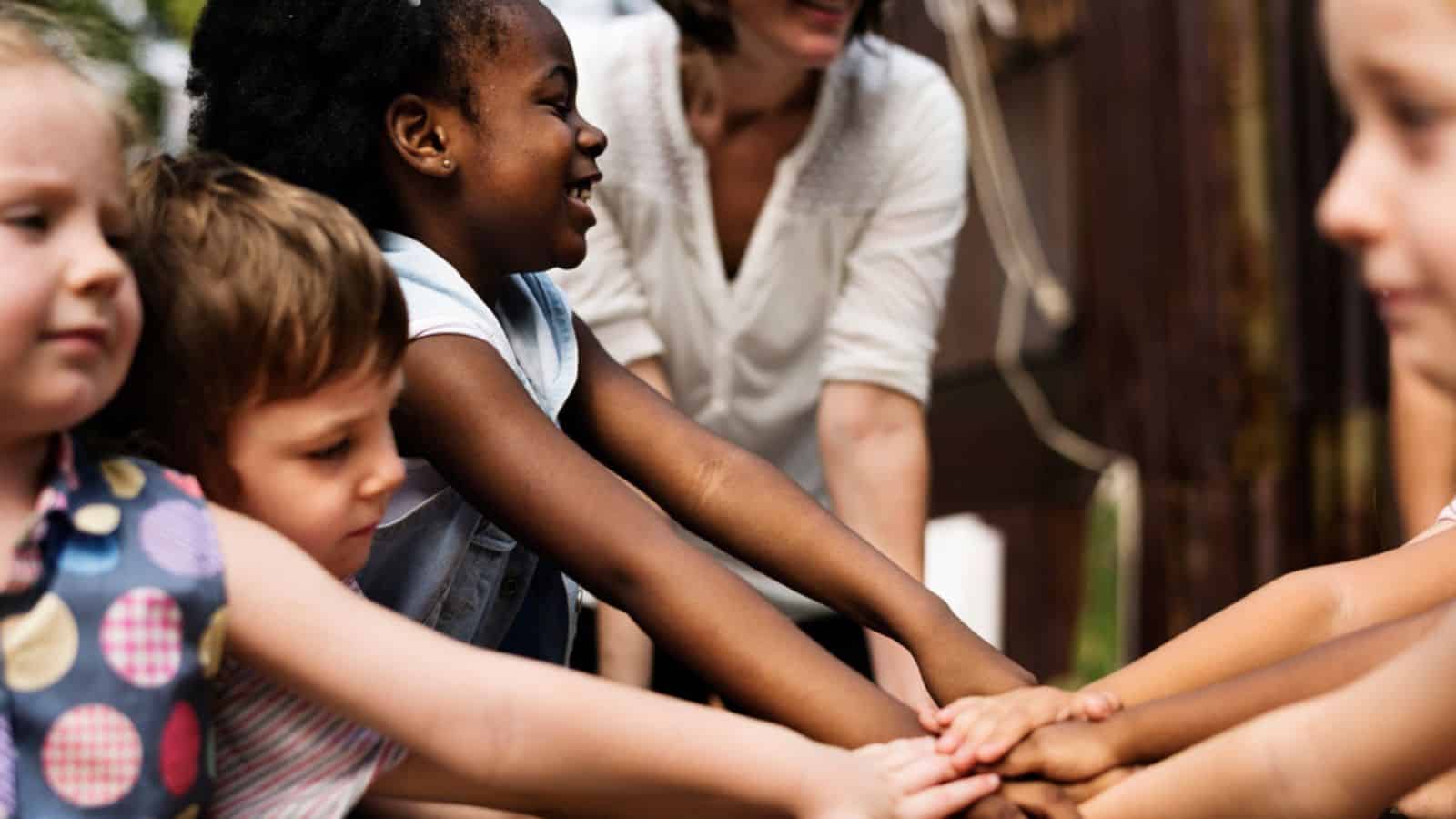
Many yoga poses, such as plank pose or tree pose, require children to support their own body weight. These poses engage multiple muscle groups, including the core, arms, and legs, and helps to build and tone muscles but in a much gentler way than lifting weights. Strengthening these muscles is essential for young children as it supports their physical development, improves endurance, and enhances their ability to perform daily activities. Regular practice of yoga can lead to stronger muscles, which in turn can help children maintain a healthy weight and improve their overall physical health.
Enhances Balance and Coordination
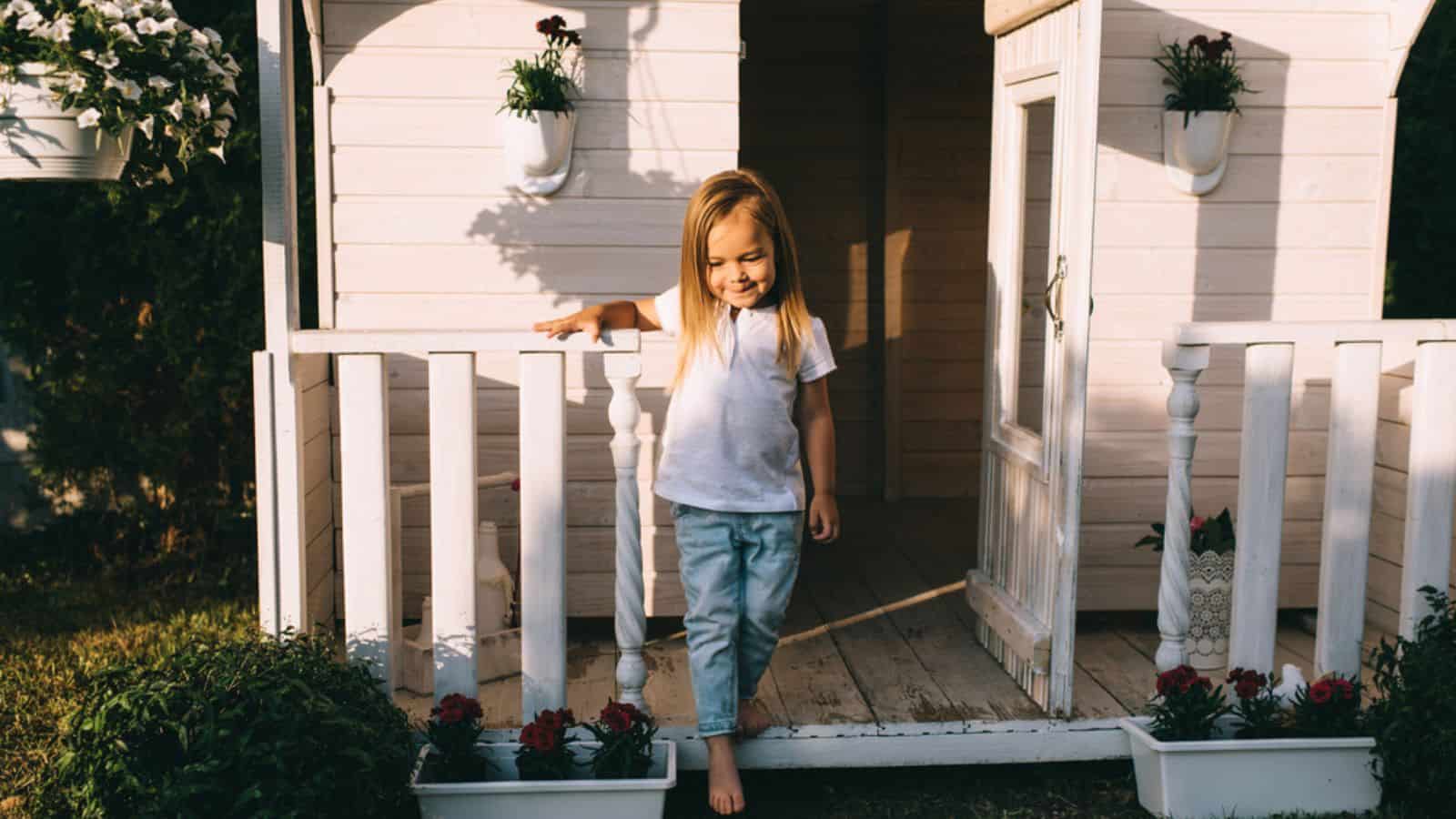
Yoga poses are designed to enhance balance and coordination, which are vital skills for young children. Balancing poses like the tree pose or the eagle pose helps train children to balance. Coordination is also developed through sequences of movements that require children to transition smoothly from one pose to another. Improved balance and coordination can boost a child’s confidence and reduce the risk of falls and injuries.
Reduces Stress and Anxiety
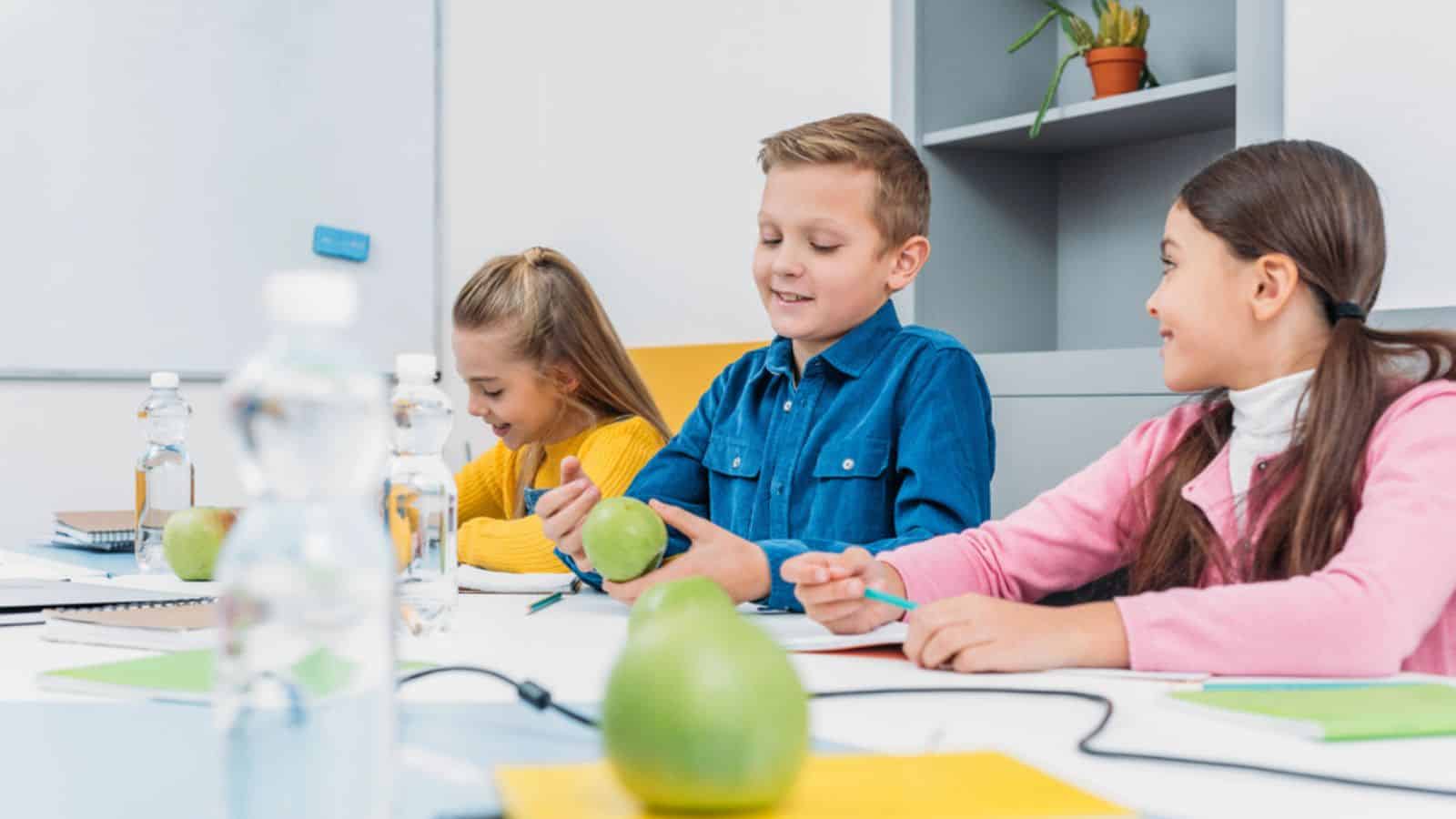
Yoga is highly effective in reducing stress and anxiety as the practice includes breathing exercises and relaxation techniques that help calm the mind and body. For instance, deep breathing exercises can activate the parasympathetic nervous system, which promotes relaxation and reduces the production of stress hormones. These techniques can be particularly beneficial for children who experience anxiety or have difficulty managing stress. By learning to control their breath and calm their mind, children can develop healthier coping mechanisms for dealing with stressful situations even at a young age.
Boosts Concentration
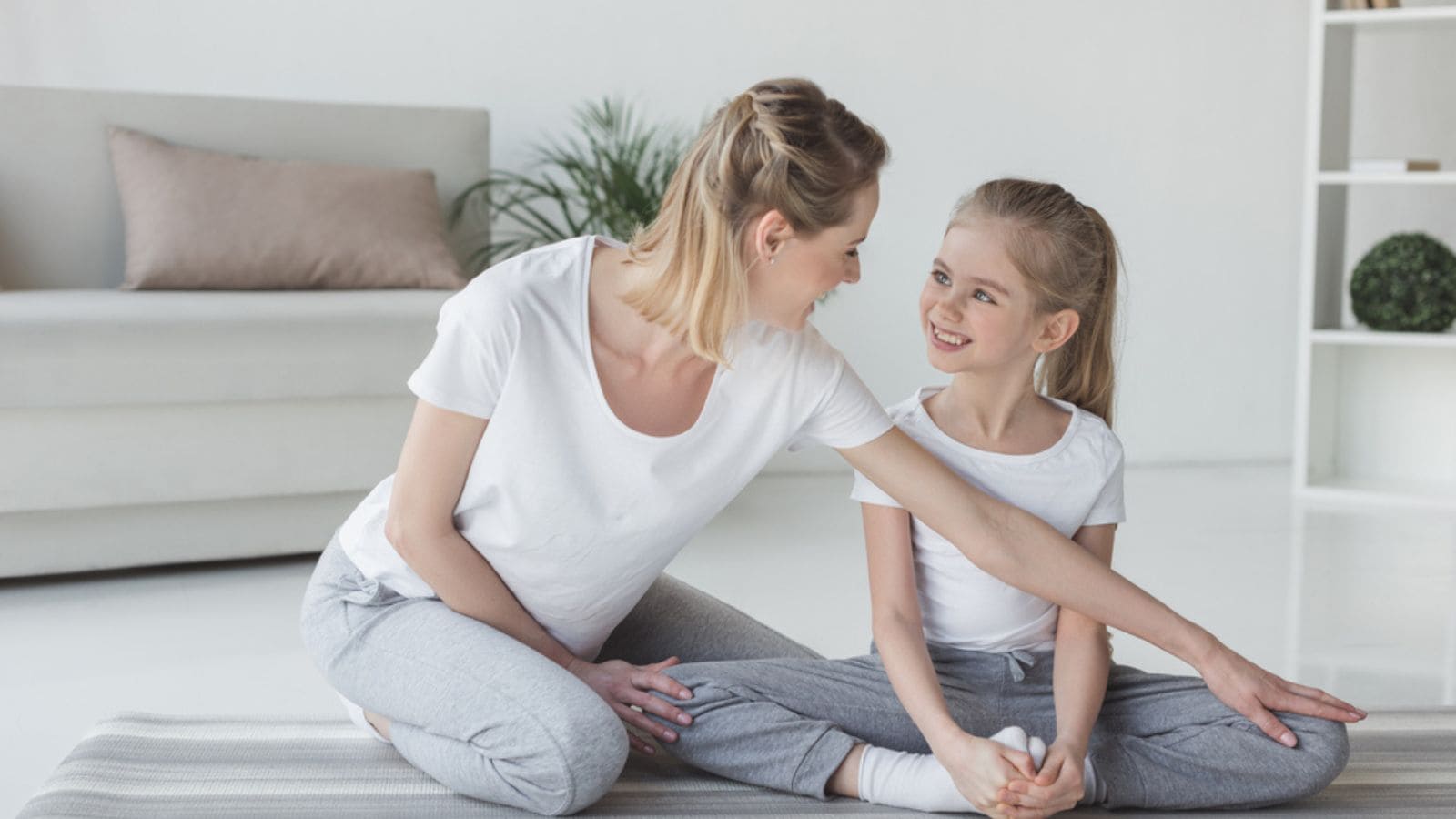
Did you know yoga can help with concentration? This is why it’s a great tool to help enhance a child’s ability to concentrate and focus. Holding poses and maintaining balance requires mental discipline and focus, which trains children to have better attention spans in academic settings. Moreover, the mindfulness aspect of yoga encourages children to be present and attentive, helping them to tune out distractions. Studies have shown that children who practice yoga regularly exhibit improved cognitive function and academic performance. By incorporating yoga into their routine, children can develop better study habits and a more focused mindset, which can lead to greater academic success.
Promotes Mindfulness
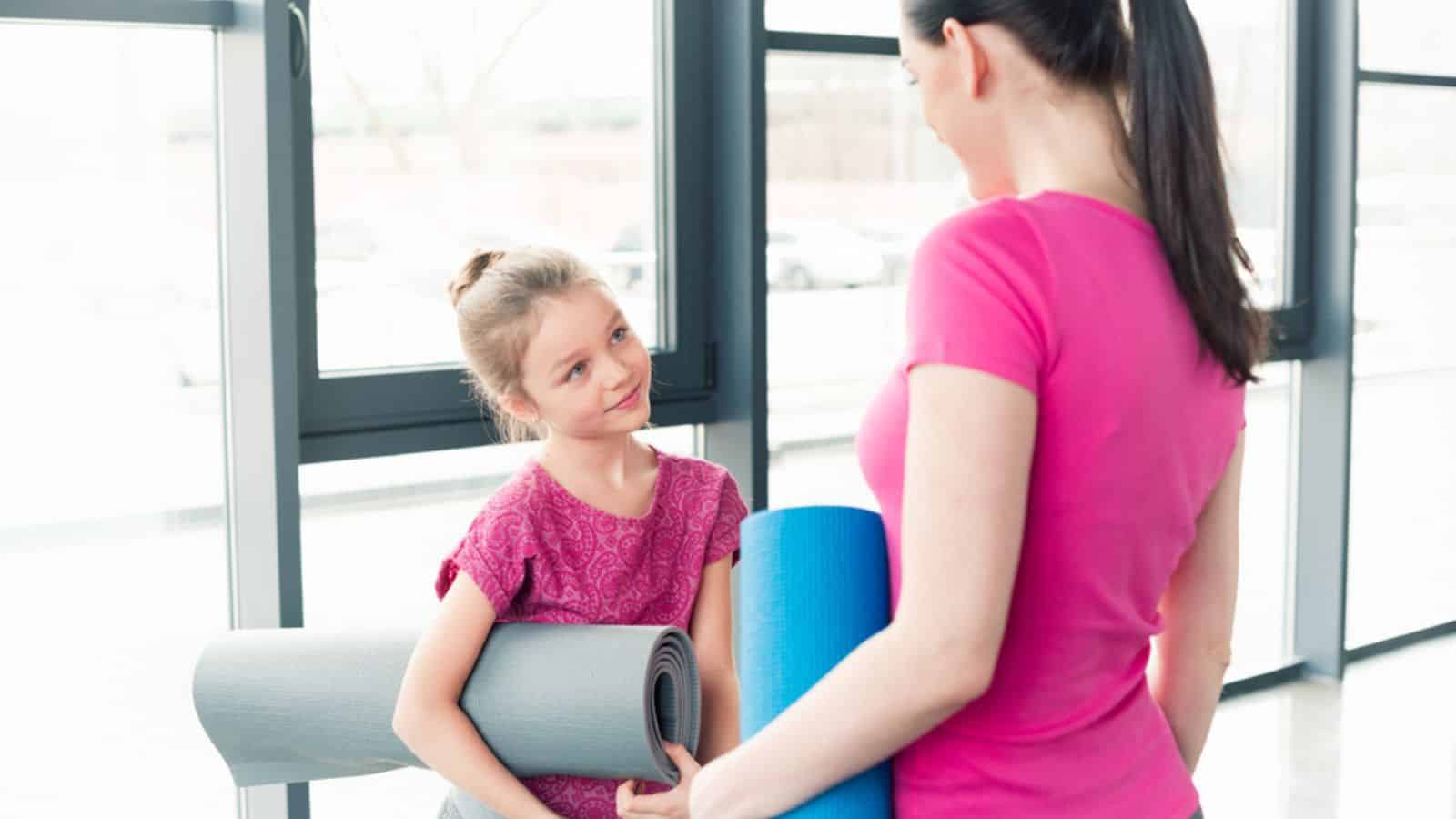
Yoga encourages mindfulness, which is the practice of being fully present and engaged in the current moment. This is particularly beneficial for young children, who are often easily distracted. Mindfulness exercises in yoga teach children to pay attention to their breath, body sensations, and thoughts without judgment. This heightened awareness can help children become more attuned to their emotions and reactions, allowing them to respond to situations more thoughtfully and calmly.
Improves Posture
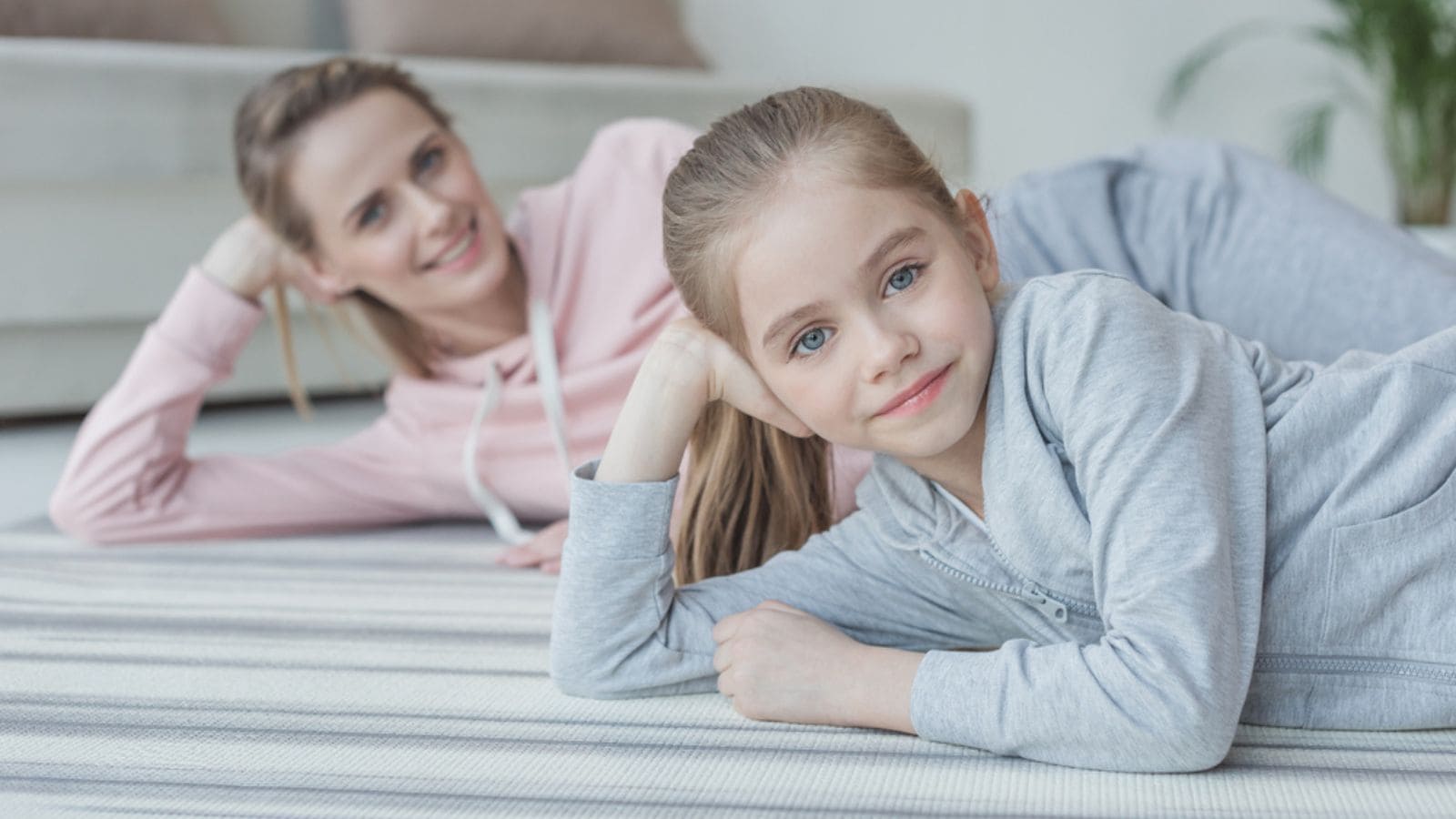
Regular yoga practice can help children develop and maintain good posture. Many children today spend a significant amount of time sitting, whether in school or at home, which can lead to poor posture and related health issues. Yoga poses such as the mountain pose and the cat-cow stretch emphasize proper alignment and strengthen muscles that support good posture. Improved posture not only helps children look more confident but also prevents back and neck pain, improves breathing, and enhances overall physical health.
Encourages Self-Awareness
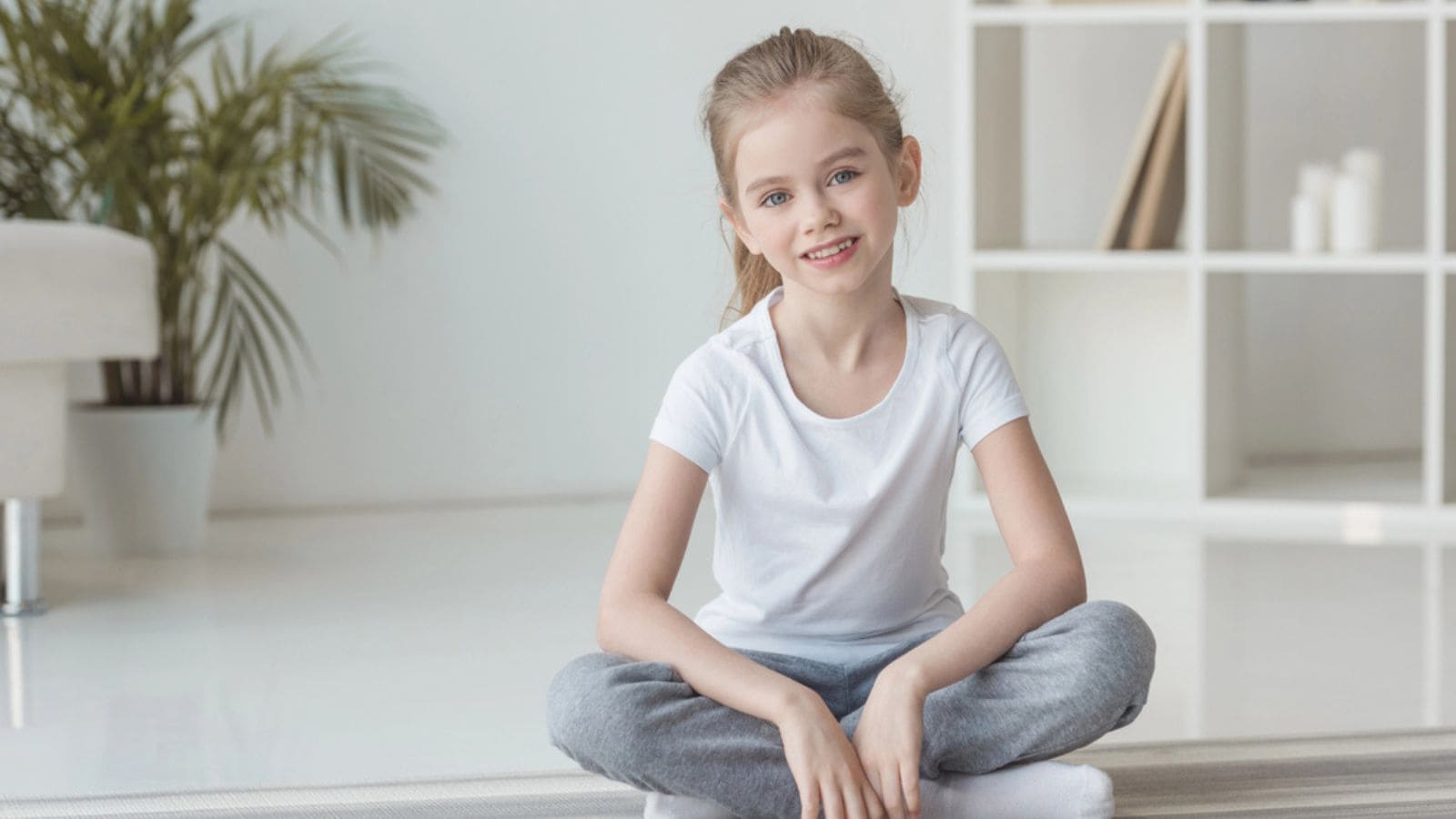
Yoga fosters self-awareness in young children by encouraging them to tune into their bodies and minds. Children learn to recognize their physical sensations, emotions, and thoughts through various poses and mindfulness exercises. This heightened self-awareness can help children manage their emotions and reactions more effectively. For example, a child who is feeling anxious can use breathing techniques learned in yoga to calm themselves down. This self-awareness helps build emotional intelligence, which is essential for building healthy relationships and navigating social situations effectively.
Enhances Respiratory Health
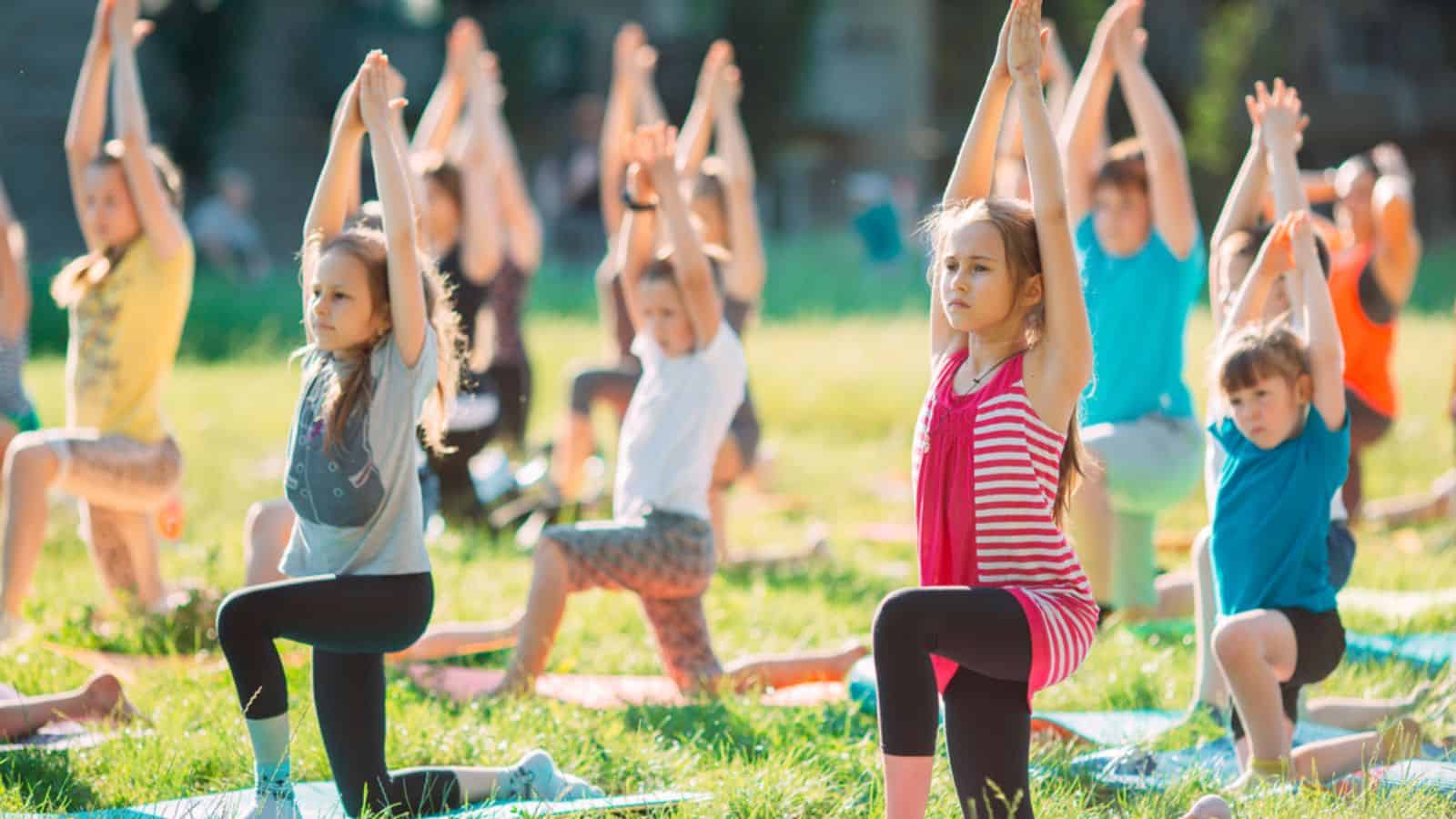
Breathing exercises, or pranayama, are a fundamental part of yoga and can significantly improve respiratory health in children. These exercises teach children how to use their lungs more efficiently, increasing lung capacity and improving oxygen delivery throughout the body. By incorporating yoga into their routine, children can develop better breathing habits that support overall health and well-being.
Supports Emotional Well-Being
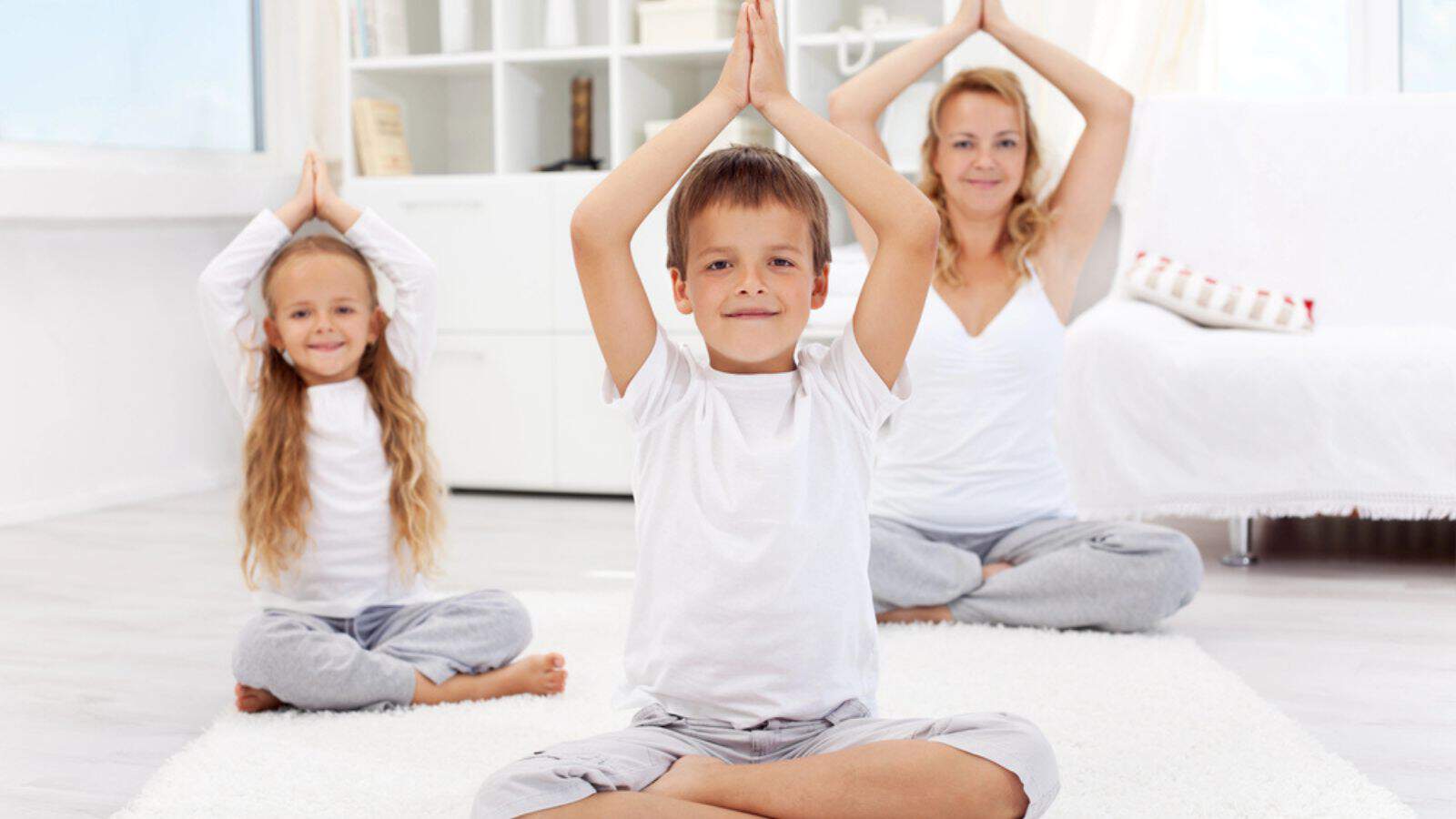
Yoga promotes emotional balance and resilience in children, as the practice includes various techniques that children can happy to manage their emotions, such as deep breathing, meditation, and mindful movement. These techniques can help children cope with challenging emotions like anger, sadness, or frustration in a healthy and constructive manner. Additionally, the non-competitive nature of yoga fosters a sense of self-acceptance and compassion, which can boost self-esteem and reduce feelings of inadequacy or comparison.
Builds Confidence

Introducing yoga to young kids can significantly boost their self-esteem and confidence. Mastering various yoga poses requires patience, practice, and perseverance, which can be incredibly empowering for children. As they progress and master more advanced poses, children experience a sense of accomplishment that bolsters their confidence. Additionally, the non-competitive nature of yoga allows children to focus on their personal growth and achievements, fostering a positive self-image and a healthy sense of self-worth.
Encourages Healthy Habits

Introducing yoga to children at a young age can promote lifelong healthy habits. Yoga teaches children the importance of regular physical activity, mindfulness, and self-care. These practices can become ingrained in their daily routines, encouraging them to prioritize their physical and mental health as they grow older. Additionally, the principles of yoga, such as mindfulness and respect for one’s body, can influence other areas of their lives, such as making healthier food choices and maintaining a balanced lifestyle. By starting yoga early, children can develop a strong foundation of healthy habits that will benefit them throughout their lives.
Reduces Behavioral Issues
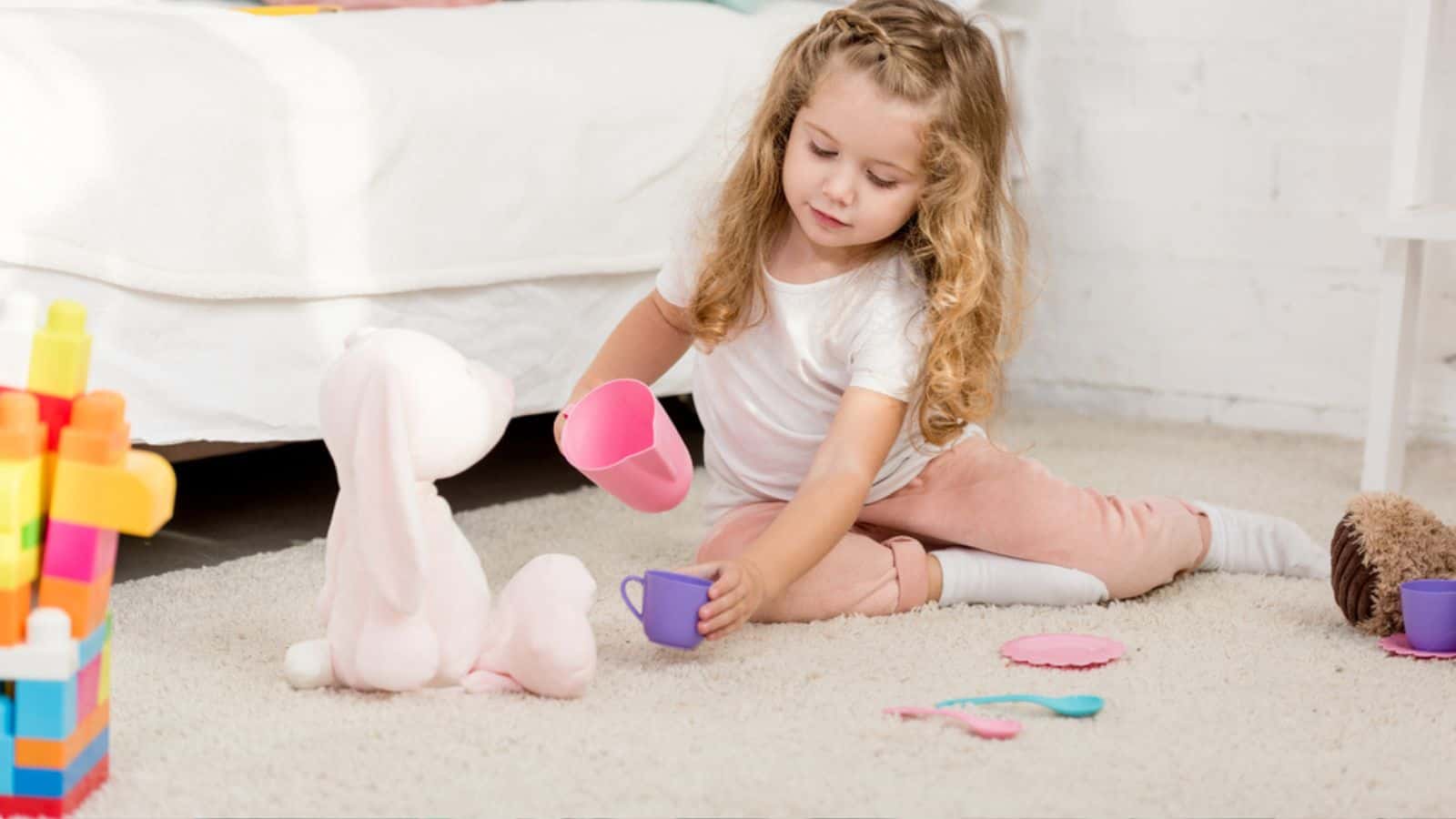
Regular yoga practice can help reduce hyperactivity and improve behavior in children. The mindfulness and self-regulation techniques taught in yoga can be particularly beneficial for children with attention deficit hyperactivity disorder (ADHD) or other behavioral issues. Yoga helps these children develop better impulse control, focus, and patience. Additionally, the calming effects of yoga can reduce feelings of frustration and aggression, leading to more positive behavior. By practicing yoga, children can learn to manage their emotions and reactions more effectively, resulting in improved behavior both at home and in school.
Improves Academic Performance
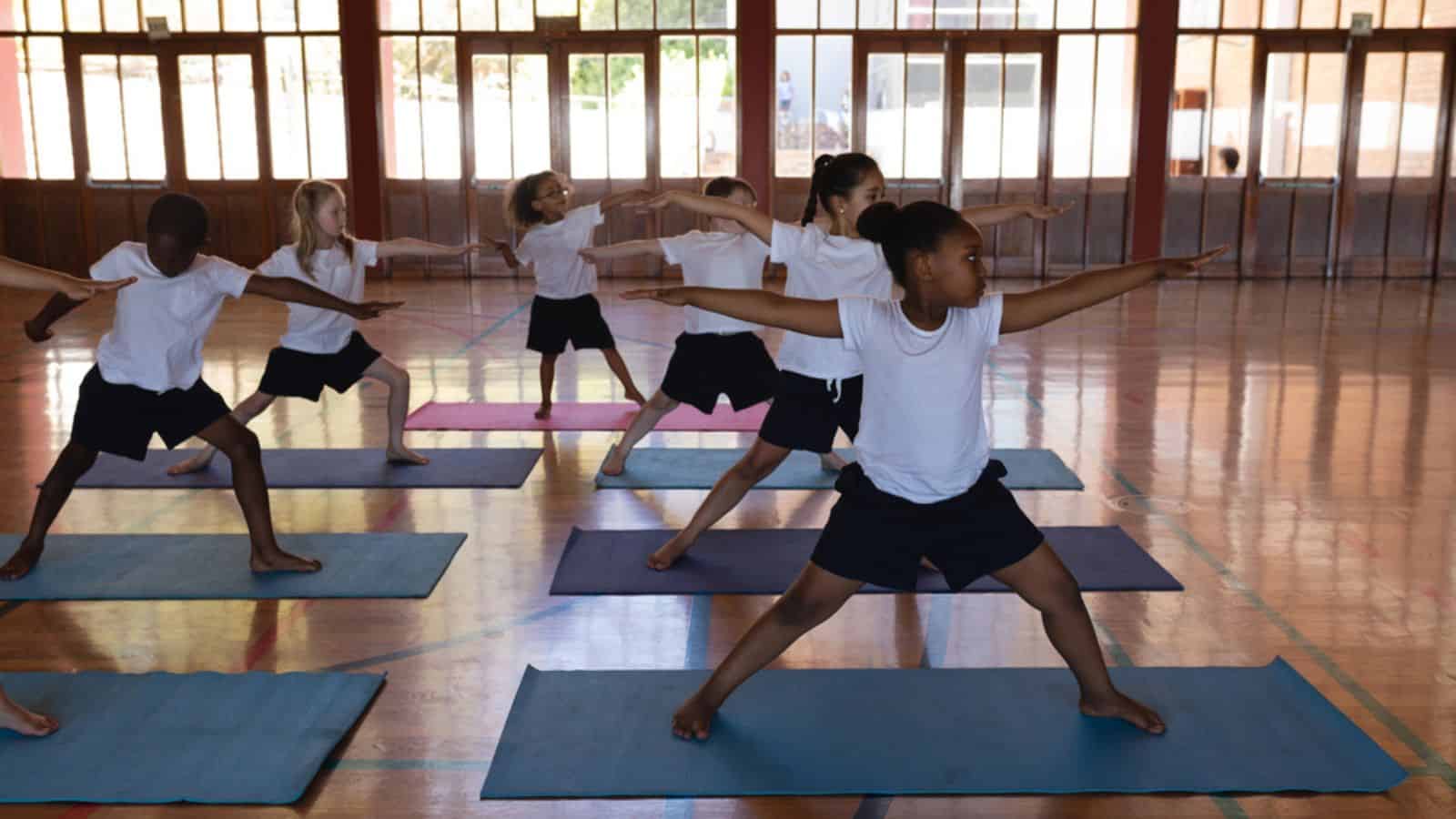
Yoga can contribute to better academic outcomes by enhancing concentration and reducing stress. The focus and discipline required in yoga practice can translate into improved attention spans and better focus in academic settings. Children who practice yoga regularly often exhibit improved cognitive function, memory, and problem-solving skills. Additionally, the stress-reducing benefits of yoga can help children manage the pressures of school more effectively, leading to a more positive attitude towards learning and academic challenges.
Promotes Physical Activity
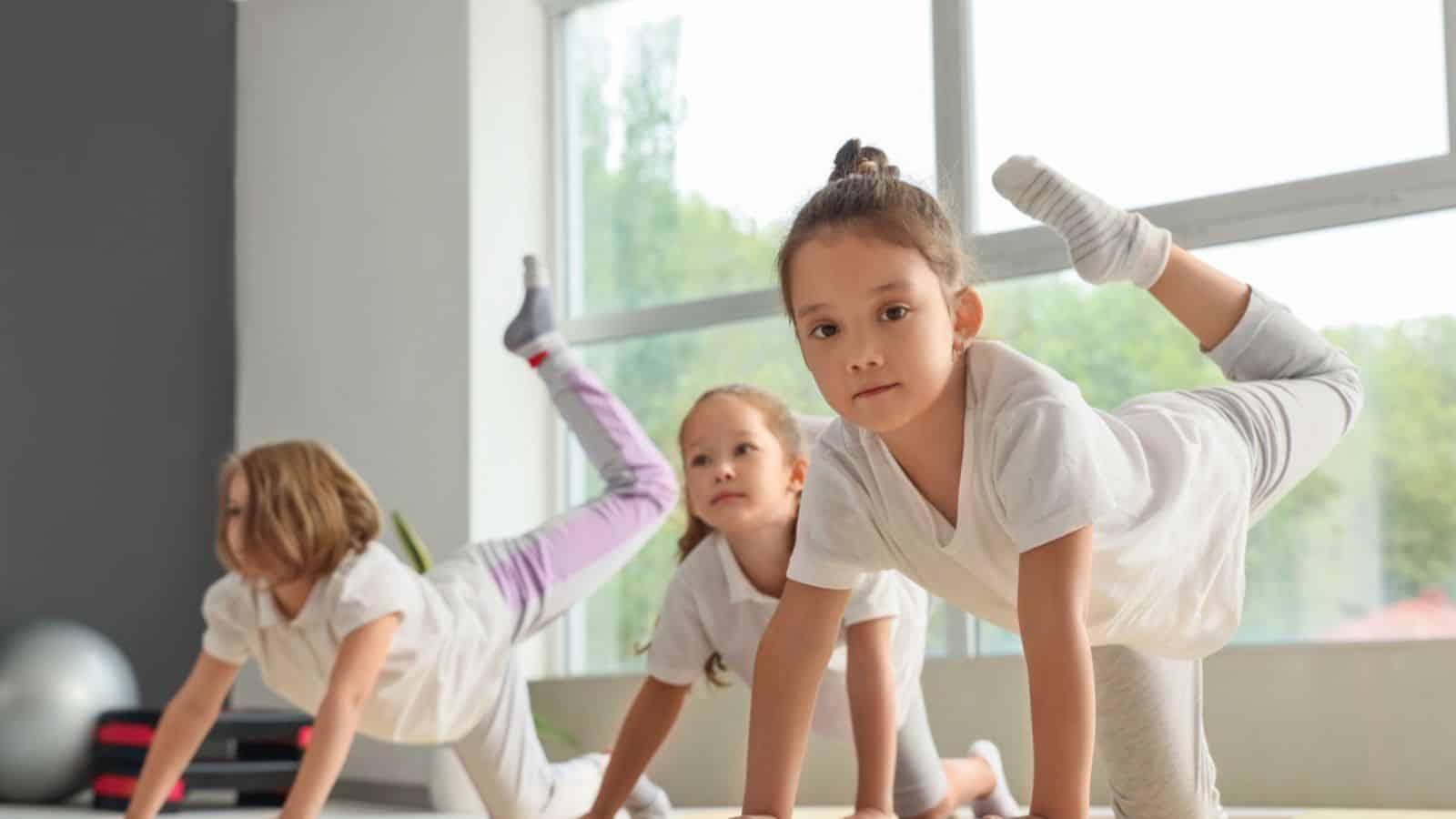
Yoga encourages a love for physical activity and exercise, which is essential for maintaining a healthy lifestyle. Unlike many other forms of exercise, yoga is accessible to children of all fitness levels and can be practiced anywhere without the need for special equipment. This makes it an excellent way to introduce children to the benefits of regular physical activity.
21 People Share Ways Parenthood Completely Altered Their Worldview

Becoming a parent is one of the most transformative experiences in a person’s life. It brings about profound changes that extend far beyond the everyday responsibilities of raising a child. Parenthood reshapes priorities, alters perspectives, and introduces a new depth of emotion and understanding. From finding joy in the simplest moments to reevaluating career aspirations, the journey of raising children leads to significant personal growth and a deeper appreciation for life. In this article, we’ll showcase 21 Reddit responses on how parenthood has changed their perspective.
21 People Share Ways Parenthood Completely Altered Their Worldview
17 Reasons Why Your Kids Should Share A Room

Deciding whether or not to have your children share a room can be a challenging decision for many parents. While some families have ample space to provide individual rooms for each child, others may find that room-sharing is a practical necessity. Beyond the logistical considerations, there are numerous benefits to having siblings share a room that can positively impact their emotional, social, and developmental growth. Here are some reasons why you shouldn’t feel guilty about letting your kids share a room.




